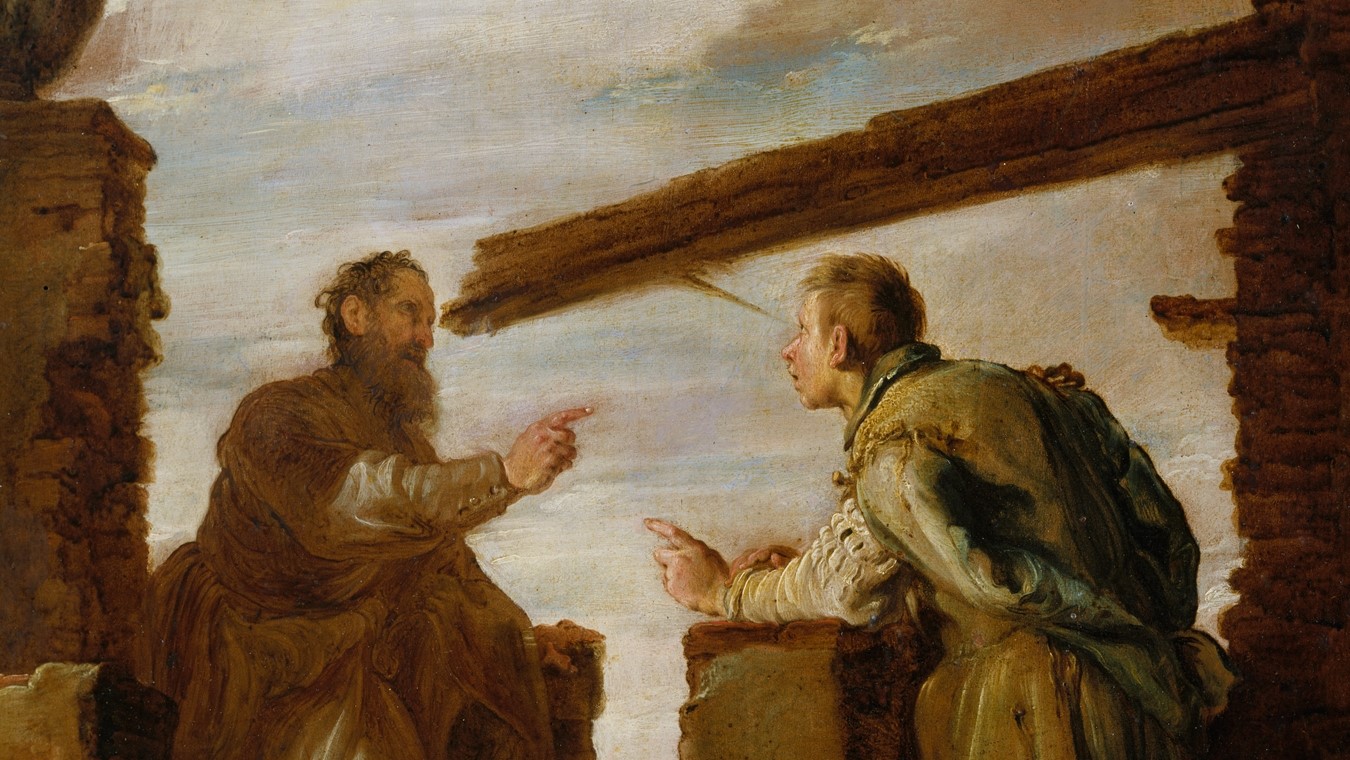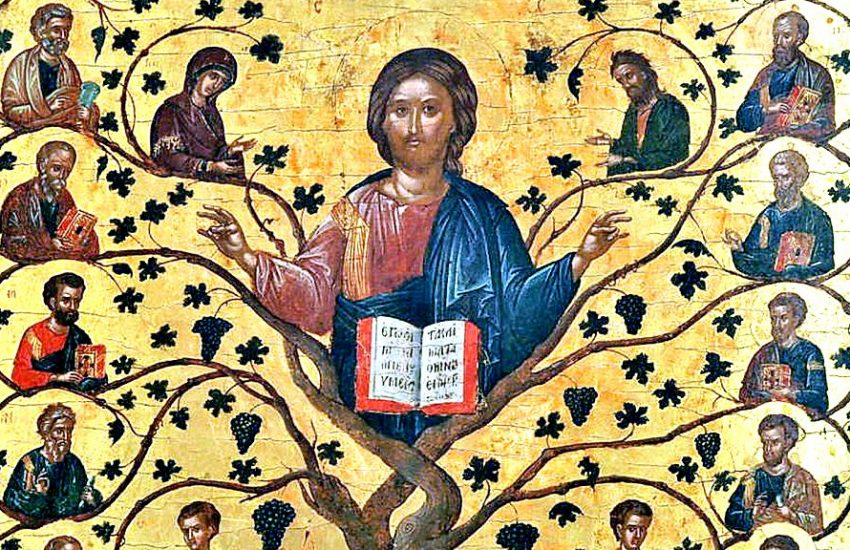A Spiritual Self-Exam
Eighth Sunday in Ordinary Time (C)
Last Sunday, Jesus told us not to judge one another (Lk 6:37). This Sunday, Jesus goes one step further. Not only are we not to judge our brother for the splinter in his eye, but we are told to deal with the large beam in our own. In other words, instead of focusing on our neighbor’s faults, we are to turn our critical eye inward to discern our own.
How can you say to your brother, ‘Brother, let me remove that splinter in your eye,’ when you do not even notice the wooden beam in your own eye? You hypocrite! Remove the wooden beam from your eye first; then you will see clearly to remove the splinter in your brother’s eye. Lk 6:42
Let’s be clear: the splinters and beams Jesus is talking about are sins. This is an important point, because both Jesus and the world tell us not to judge others, but for very different reasons. The world says not to judge others because there is no such thing as sin (so there is nothing to judge them for). When Jesus says not to judge your brother for the splinter in his eye, it’s not because the splinter doesn’t exist or is just a “social construct.” It’s because he wants us to deal instead with the giant beam in our own eye. Sin is real.
There are many ways to define sin. Sin is the rejection of God’s law. It is an act disobedience to the divine will. It is an offence against reason and truth. The Hebrew word for sin literally means “to miss the mark” or “to fall short.” Of the many ways to define sin, I tend to always come back to this one: sin is “failure in genuine love for God and neighbor” (CCC 1849). God calls for us to love as he loves. “Love one another as I have loved you,” Jesus says (Jn 13:34).
When we sin against God, against our neighbor, or against ourselves, it is because we have failed to love God, our neighbor, or ourselves as we should have. And if we don’t think that we do that — if we think that we love everyone perfectly, all the time — then we have a great big giant beam in our eye making us blind, and we certainly have no business pointing out other’s splinters.
The reason why our faith forbids us from judging others is twofold. First and foremost, we are not God and judging others is not our job. Period. But secondarily, it’s also impossible for us to do. The Church teaches us that to be culpable of mortal sin (that is, sin so egregious that it is deadly to the life of grace God offers us), three things must be true: not only must the act itself (the sin we are committing) be grave, but we have to do it knowingly and willingly (see CCC 1857). In other words, if we do something seriously wrong, we know it is wrong, and we choose to do it anyway, we are responsible for that choice. That includes separating ourselves from God, because we have freely chosen to involve ourselves in actions that God cannot be a part of.
The reason it is impossible for us to judge others is because while we may be able to look at the external actions of another and judge the act itself to be sinful, we can never know the mind and heart of another. We cannot know the extent to which they understood and freely consented to their actions. So we can judge their actions (calling sinners to repentance is a spiritual work of mercy) we cannot judge them as persons. Only God knows our minds and hearts. So we are called to be patient and forgiving with others, as we pray God is patient and forgiving with us.
Christ in the gospel this week is imploring us to look inward to discern our own minds and hearts, to see where we have failed in love, so that we might repent and receive his mercy. In church parlance, this is called an “examination of conscience.” This can be uncomfortable, and even a bit scary, but it must be done. The spirit of the world tells us to ignore our faults, that we are perfect just the way we are, and to live without regrets. But would you tell a sick person not to seek out a doctor? It amounts to the same thing.
An examination of conscience is like a spiritual self-exam. We don’t do it to condemn ourselves any more than a woman performing a self-exam is giving herself breast cancer. The purpose of this exam is to diagnose ourselves so that we can receive the healing we need. Just like medical self-exams save lives, spiritual self-exams save souls.
Lent begins this week with Ash Wednesday. It is customary for Catholics to make a good confession during the season of Lent. Part of preparing to receive this sacrament is performing an examination of conscience. This is not something to be rushed (don’t wait to do it until you are in line for confession). Take some time the day before and really pray about it. Ask God to illuminate your mind and heart to discern where you have “missed the mark” or “fallen short” of the love He calls us to share.
There are many aids to help you examine your conscience, usually in the form of questions for you to reflect on. There is a short one in the back of the Order of the Mass and Prayer Booklet in our chapel pews. You can find several listed on the website of the USCCB, including one for young adults. There are several linked to by FOCUS (the Fellowship of Catholic University Students) on their blog. And these days there are many Catholic apps for your smart phone that will include examinations of conscience and other aids for confession. (If you want to go to confession and it’s been a while, here’s a brief “how to” you can download to review — remember, the priest is there to help you!)
St. Ignatius of Loyola kept the practice of making a regular, daily examination of conscience at the end of each day. This has come to be known as the “Daily Examen” and is something I recommend you might make a habit of, especially during the coming Lenten season. It consists of five simple steps, which are listed on this prayer card you can download from Loyola Press.
- Ask God for light. I want to look at my day with God’s eyes, not merely my own.
- Give thanks. The day I have just lived is a gift from God. Be grateful for it.
- Review the day. I carefully look back on the day just completed, being guided by the Holy Spirit.
- Face your shortcomings. I face up to what is wrong, in my life and in me.
- Look toward the day to come. I ask where I need God in the day to come.



